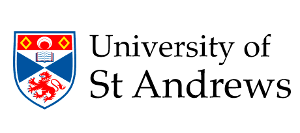The Fife Sustainable Natural and Cultural Coastal Zone – a blueprint for the sustainability of communities & the protection of natural & cultural heritage. This project will run from 1st Dec 2020 – 31st July 2021.
The project has been funded through the St Andrews Restarting Interdisciplinary
Research Fund (SARIRF) from the University of St Andrews.
The Fife Sustainable Natural & Cultural Coastal Zone (Fife SuCoZo) will bring together academy, community, & industry to build a pilot living-laboratory in the NE of Fife. Fife SuCoZo will have a broad interdisciplinary research agenda across the nearshore, intertidal & onshore areas. Its central aims will be the sustainability of communities & the protection of natural & cultural heritage. This living laboratory for applied research will align with & respond to
a variety of constituencies, helping to
- Shape the vision, attitudes, actions, & lifestyles of local communities and businesses,
- Develop voluntary and statutory processes for the planning & balanced management of the exploitation, enjoyment, & protection of the Fife coast & adjacent marine areas,
- bring experience from research in other countries to bear on local issues, allowing experimentation with local solutions for global application.
The team will seek a convergence of positive systemic and behavioural change, guided by robust research. This pilot project will initiate the collection of key data streams, lay the groundwork for integration with local communities & governance processes, & establish a web-portal for engagement and knowledge-mobilization.
This accessible online research portal will enable wide engagement through a ‘citizen science’ approach, inviting public contributions using mobile phones to record environmental, cultural, & reflective data.
Results will be available live online & in the University museums. Initial research will include environmental aspects of the coastal corridor (the physical nature of the coast through time, the ecosystems it supports) cultural elements (cultural heritage, archaeology) and society (communities, demographics, sustainable economies). Beyond the pilot phase, the interdisciplinary, applied research agenda will be shaped by an iterative exchange with local communities, key business groups, & governance processes.

